Life
Sign up for our newsletter
We summarize the week's scientific breakthroughs every Thursday.
-
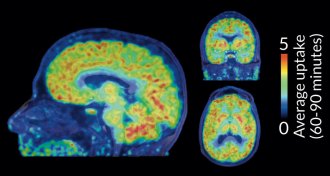 Genetics
GeneticsScientists get a glimpse of chemical tagging in live brains
For the first time scientists can see where molecular tags known as epigenetic marks are placed in the brain.
-
 Paleontology
PaleontologyHumans may have taken different path into Americas than thought
An ice-free corridor through the North American Arctic may have been too barren to support the first human migrations into the New World.
-
 Paleontology
PaleontologyT. rex look-alike unearthed in Patagonia
A new dinosaur species discovered in Patagonia has the runty forearms of a Tyrannosaurus rex, but is not closely related to the gigantic predator.
By Meghan Rosen -
 Animals
AnimalsBetty the crow may not have invented her hook-bending tool trick
Textbook example of Betty the crow’s proposed insight into toolmaking is now called into question by observations of similar hook bending by wild New Caledonian birds.
By Susan Milius -
 Neuroscience
NeuroscienceAging-related protein may play role in depression
Mouse study reveals link between aging protein and depression.
-
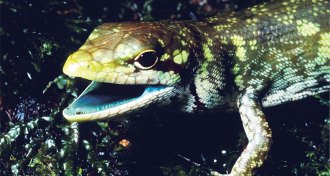 Animals
AnimalsThese lizards bleed green
Blood and bones turn naturally green in island lizards. Their evolutionary history still needs explaining.
By Susan Milius -
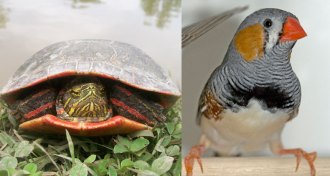 Genetics
GeneticsAncient reptiles saw red before turning red
The discovery that birds and turtles share a gene tied to both color vision and red coloration is more evidence that dinosaurs probably saw the color red — and perhaps were even red, too.
-
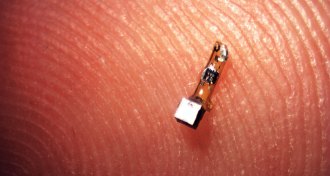 Neuroscience
Neuroscience‘Neural dust’ can listen to body’s electrical signals
Tiny crystals can detect electrical signals in nerves and muscles of rats.
-
 Science & Society
Science & SocietySea life stars in museum’s glass menagerie
See Leopold and Rudolf Blaschkas’ delicate glass jellyfish, anemones, sea worms and other marine invertebrates at the Corning Museum of Glass.
-
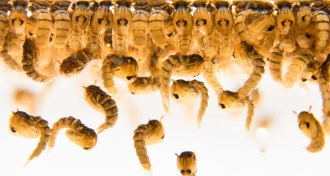 Science & Society
Science & SocietyFDA OKs first GM mosquito trial in U.S. but hurdles remain
The FDA has concluded that test releases of Oxitec GM mosquitoes on a Florida key poses no significant problem for the environment, but local officials still have to agree
By Susan Milius -
 Paleontology
PaleontologyNew fossil suggests echolocation evolved early in whales
A 27-million-year-old whale fossil sheds light on echolocation’s beginnings.
-
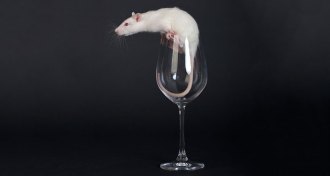 Genetics
GeneticsRats offer clues to biology of alcoholism
Heavy-drinking rats are giving scientists new genetic clues to alcoholism.